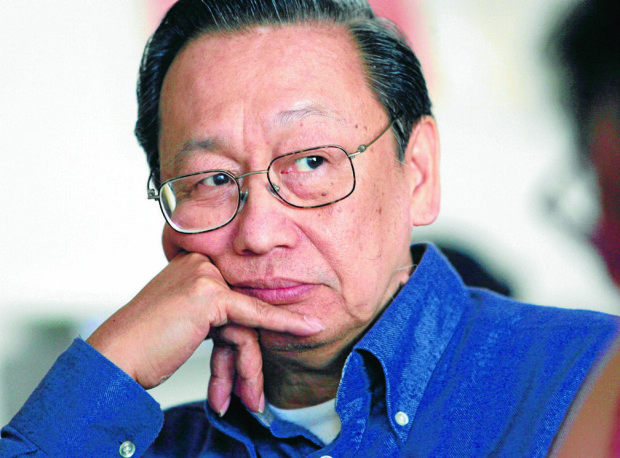Reds open to federalism, says Joma Sison

RENDEZVOUS IN EUROPE Jose Maria Sison,Communist Party of the
Philippines founder. INQUIRER FILE PHOTO
OSLO—Communist rebels negotiating peace with the government welcomed efforts Thursday to shift to a federal system, but said it was too early to tell what impact it would have on the talks.
Communist Party of the Philippines (CPP) founding chair Jose Ma. Sison, who is also chief consultant for the National Democratic Front of the Philippines (NDFP), said the revolutionary movement could agree to a federal system of governance.
President Duterte has been pushing for the adoption of a federal system, saying the present form of government had not helped the country move forward as development had always been centered in Manila.
“But it would depend on its features,” Sison said, stressing that it appeared that the government still had to complete a common framework for the proposed change in the system of government. He did not elaborate.
Comprehensive agreement
Article continues after this advertisementSison said the issue would form part of the discussions in the next meetings of the peace panels. He added it would be taken up during the crafting of the comprehensive agreement on political and constitutional reforms, one of the highlights of the recently concluded second round of talks aimed at ending decades of communist insurgency that has left thousands dead since 1969.
Article continues after this advertisementThe peace negotiators have already agreed on the framework and outline for the agreement on political and constitutional reforms, he said.
Lawyer Rene Sarmiento, a member of the government peace panel, told the Inquirer that the discussions in the Reciprocal Working Group for constitutional reforms were “very fruitful” and consistent with the Joint Oslo Statement last August.
Exchanging outlines
“What we did was we exchanged outlines and we worked on harmonizing the two. In so short a time, the harmonization was completed because the two have common provisions. There were so many commonalities,” Sarmiento said.
The challenges, Sarmiento added, were only in the wording and because they had to agree on a commonly accepted term.
In the draft outline of the NDFP, there was no item on security reform but the government negotiated to have it included, Sarmiento said.
Civilian supremacy
He said the rebels would like to ensure civilian supremacy over the military and this could also be discussed in the agreement on the end of hostilities and the disposition of forces.
The common draft framework and outline have five parts including the declaration of principles; bases, scope and applicability; political and constitutional reforms; mechanisms; and final provisions.
Both parties agreed that political and constitutional reforms would have 12 sections, to include, among others, national sovereignty and self-determination, economic freedom and national patrimony, self determination, social justice and form of governments, and judicial reforms.
Electoral reforms
Sison said they also wished to see significant electoral reforms such as the cleansing of the party-list system to ensure that it remained faithful to its pro-poor objectives.
The NDFP was also proposing the introduction of a subsidy for political parties depending on their performance, similar to the practice in Europe, Sison said. —KARLOS MANLUPIG